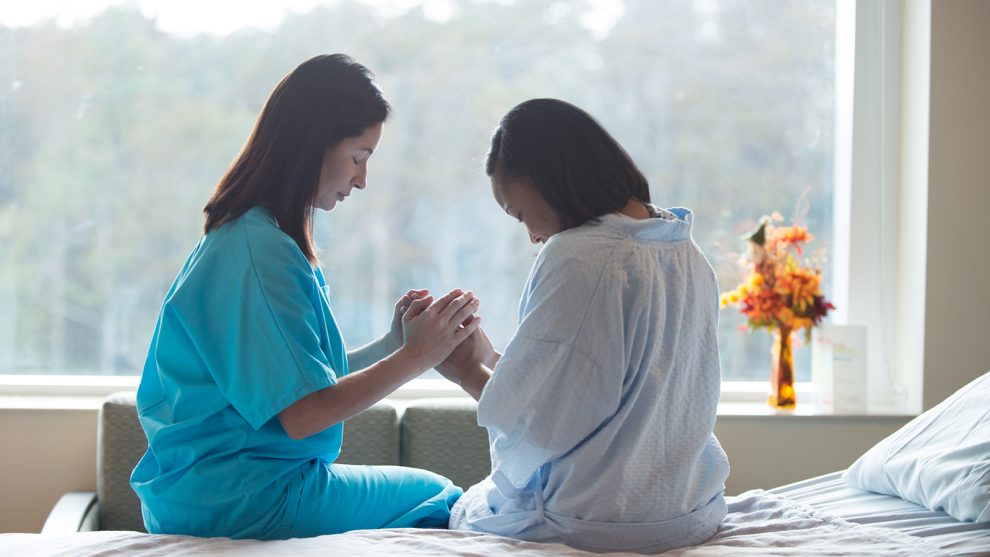
UNITED STATES, May 28, 2019 (Religion News): HPI note: Hinduism Today has long encourage the development of a Hindu chaplaincy to serve in hospitals, the military and universities. This article helps explain their function.
A common perception of clergy who work in hospitals is that they are there to perform last rites for the terminally ill, or prompt 11th-hour conversions. But chaplaincy has little to do with religion per se. “We try to hear their story,” says Jim Rawlings,who retired recently as head of Duke University Hospitals’ pastoral services staff. “To be able to tell your story is a way to become known and thus become less lonely, and connect with the spirit inside of us.” While a large hospital will try to provide chaplains who match religious patients’ specific faiths — and possibly a humanist chaplain to cover those who are nonreligious — a chaplain of any faith should be able to minister to any patient. The profession, which began in its modern form in the early 1900s, has swelled since the 1990s. Today there are more than 10,000 healthcare chaplains in the United States, most with master’s degrees, rigorous hands-on training and board certification. Almost two-thirds of the country’s hospitals make chaplains available.
“We don’t proselytize, and we’re not looking to change people’s belief systems,” says Amy Strano, director of spiritual care at Mount Sinai Hospital in New York. “We sit with people in the heartbreak of life. It’s about being with them and letting them grieve and share what’s on their hearts,” she explains. “We sometimes talk about the chaplain as a spiritual care specialist” — and that’s relevant whether “spiritual” refers to God, or to secular ideas of connection or significance. As our medical system grows more fast-paced, impersonal and complex, the hospital or health care chaplain’s role has been growing. Many patients need help deciphering the best next steps. With American society becoming increasingly disconnected and less religious, chaplains’ role has become particularly important. “A lot of people (in the U.S.) don’t have community. We don’t live in neighborhoods our whole lives where people know us; we don’t have those places of worship where we’re known.”
More at “source.”
